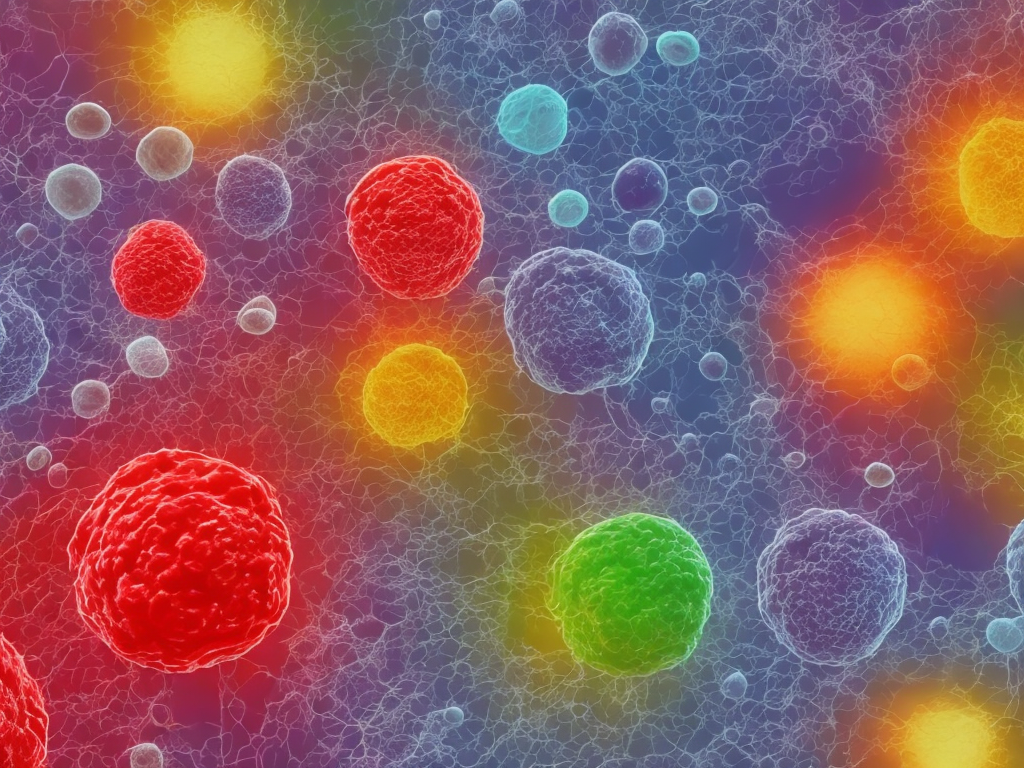
The human body is a complex and intricate system, made up of numerous organs, tissues, and substances that are responsible for maintaining the proper functioning of the body. Two of the most essential components of the human body are blood and lymph. While both of these substances are vital for keeping the body healthy and protected, they differ significantly in terms of their composition, function, and location in the body.
Blood is a fluid that circulates throughout the body, carrying nutrients, oxygen, and hormones to various organs and tissues. It is composed of a liquid called plasma, which is made up of water, electrolytes, and proteins, along with various cells and particles, such as red blood cells, white blood cells, and platelets. The primary function of blood is to transport oxygen and nutrients to the body's cells and tissues, while also removing waste products and carbon dioxide.
On the other hand, lymph is a clear, colorless fluid that is found in the lymphatic system. This system is a network of vessels and organs that work together to transport lymph throughout the body. Unlike blood, which circulates throughout the body in a closed system of vessels, lymph is transported through an open system of vessels that are connected to lymph nodes and other lymphatic organs.
Lymph is composed of water, electrolytes, and proteins, as well as immune cells, such as lymphocytes and antibodies. The primary function of lymph is to clean the body's tissues of waste products, foreign substances, and bacteria, while also aiding in the immune response.
One of the significant differences between blood and lymph is their circulation system. Blood is circulated by the heart, whereas lymph moves through the lymphatic vessels by the contraction of smooth muscles in the walls of lymphatic vessels and lymphatic organs like lymph nodes. Blood is circulated through arteries, veins and capillaries, whereas lymph flows through lymphatic vessels and organs like lymph nodes, spleen and thymus.
Another key difference between blood and lymph is their composition. Blood is made up of plasma, red and white blood cells, and platelets, while lymph consists of lymphatic fluid, white blood cells, and antibodies produced by the immune system. Red blood cells, also called erythrocytes, are responsible for carrying oxygen from the lungs to the body's tissues, while white blood cells, or leukocytes, are involved in fighting infections and diseases. Platelets are also essential for blood clotting and wound healing.
Lymphocytes, a type of white blood cell, are responsible for producing antibodies that help to defend the body against infections and diseases. They are produced in the bone marrow and develop into mature cells in the lymphatic organs like lymph nodes and spleen. Lymphocytes are of two types -B cells and T cells. The B cells produce antibodies that bind to antigens such as bacteria, toxins, and viruses, whereas the T cells recognise and destroy cancerous and infected cells.
The immune system is responsible for protecting the body against infections and diseases, and both blood and lymph play a vital role in this process. When a foreign substance, such as bacteria or a virus, enters the body, immune cells in both blood and lymph work together to identify and neutralize the threat.
In the case of blood, white blood cells, called macrophages, engulf and destroy bacteria, while antibodies neutralize viruses and toxins. However, if the infection is severe or prolonged, immune cells in the lymphatic system, particularly the lymph nodes, become activated, and lymphocytes begin to produce antibodies. Antibodies travel through the lymphatic vessels and enter the bloodstream, where they attach to invading bacteria or viruses, neutralizing them and preventing the spread of the infection.
Another difference between blood and lymph is their role in transport. Blood is responsible for transporting nutrients, oxygen, hormones, and waste products throughout the body. The nutrients and oxygen are transported by red blood cells, and the hormones are carried in the plasma. The waste products and carbon dioxide are carried to the lungs to be exhaled.
In contrast, lymph transports excess interstitial fluid, dietary lipids, and fat-soluble vitamins from the digestive tract, and circulates immune cells throughout the body. The lymphatic system works closely with the circulatory system to ensure proper fluid balance in the body.
Both blood and lymph are essential for maintaining the proper functioning of the body's systems. While blood primarily carries oxygen and nutrients to the tissues and removes waste products, lymph plays a critical role in the immune system, cleaning the tissues of infections and foreign substances.
In summary, blood and lymph differ in terms of their composition, function, and location in the body. Blood is primarily responsible for transporting nutrients and oxygen to the body's tissues, while lymph plays a critical role in the immune system, protecting the body against infections and diseases. Although these two fluids have different functions, they work together to ensure that the body remains healthy and protected from harm.
 Self-Instruct
Self-Instruct